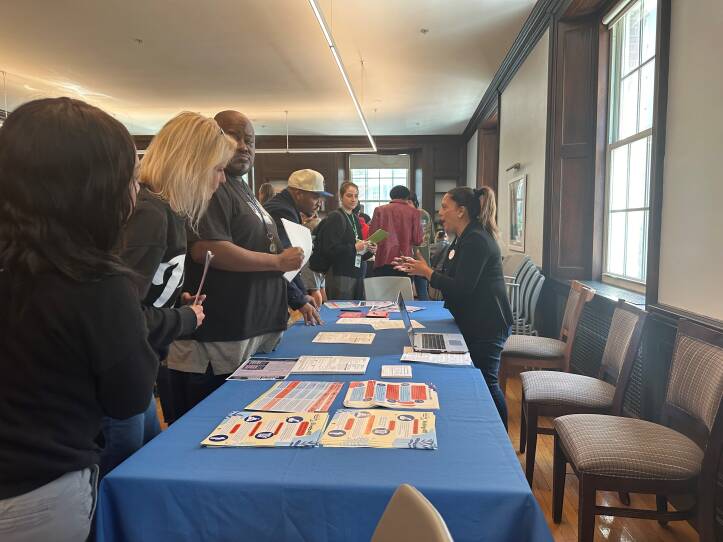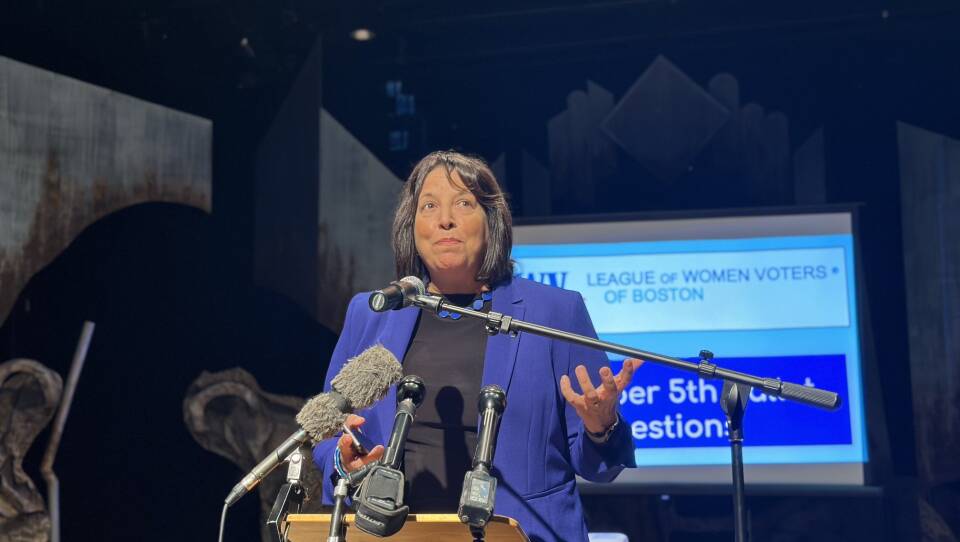Massachusetts Lt. Gov. Kim Driscoll lent her voice Monday to the effort to register people experiencing homelessness to vote, telling a gathering of about 40 people at a homeless voter registration drive they should feel empowered to cast ballots and encourage others to do the same.
“I know that there are folks in my family who feel like their vote doesn’t count,” said Driscoll, pointing to several recent local elections decided by a handful of votes, including a primary race for a Cambridge state representative seat.
“I share stories all the time of these small vote margins and things that they care about, really being able to have a meaningful difference by who you put in office or how you might vote on a ballot question,” Driscoll said. “You’re the most important person who can share that with somebody in your life.”

Driscoll’s comments came during an event organized by Pine Street Inn, New England’s largest homeless services provider, in its newest housing location in Back Bay. The nonprofit now houses about 1,000 tenants across several locations.
Lyndia Downie, the executive director of Pine Street Inn, said the organization has been registering homeless voters for about two decades, mostly during presidential elections.
“So many of our guests in the shelter thought they couldn’t vote, and we wanted to not just explain to them that ‘Yes, you can vote,’ but also give them a chance to register,” she told GBH News.
“I’m surprised that people are surprised that homeless people want to register … they care about their communities,” Downie said, adding that the population is often wrongfully stereotyped.
“The number one question when we start to organize people at the shelter is housing. Housing policy, more housing, what are we doing about housing? So, they have a lot of vested interest in voting.”
Downie said Monday that Pine Street Inn was aiming to register about three to four dozen voters onsite using the shelter’s address.
Massachusetts law provides that any resident who is a U.S. citizen over the age of 18 who does not have a felony conviction can vote.
“We want all those voices expressing themselves at the polls in every election cycle,” said Driscoll in her remarks.
This year’s election will be the first presidential election since vote by mail became widely available at the height of the COVID-19 pandemic.
In the lead up to Massachusetts’ March 5 presidential primary, nearly half of Massachusetts voters cast ballots before election day, a statistic Driscoll said she expects to repeat ahead of the Nov. 5 election.





